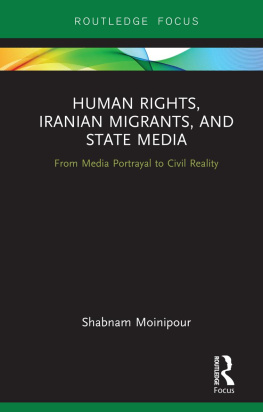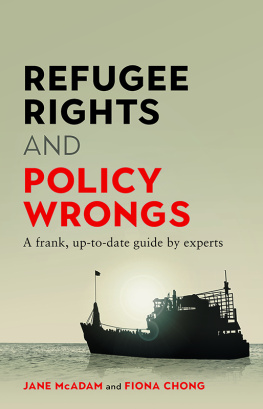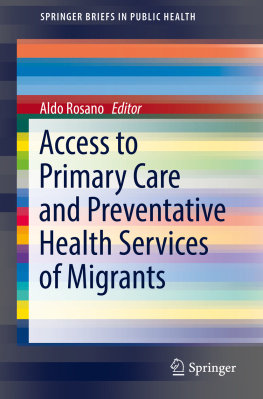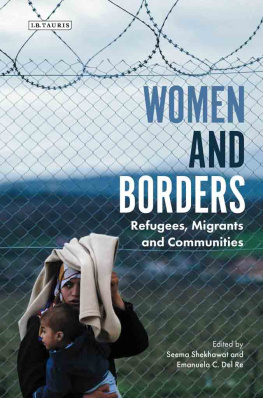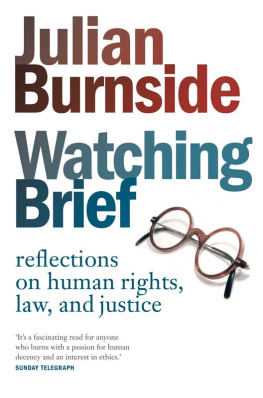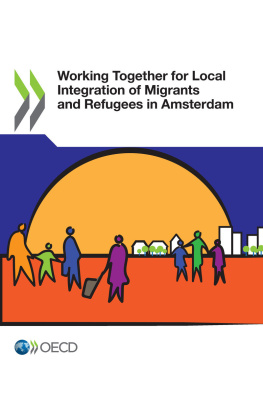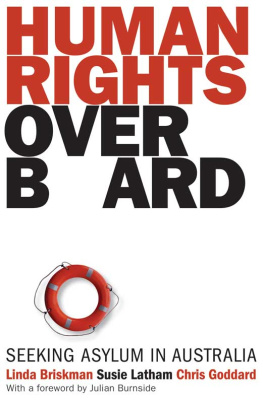The aim of this series is to publish important and original research on EU law. The focus is on scholarly monographs, with a particular emphasis on those which are interdisciplinary in nature. Edited collections of essays will also be included where they are appropriate. The series is wide in scope and aims to cover studies of particular areas of substantive and of institutional law, historical works, theoretical studies, and analyses of current debates, as well as questions of perennial interest such as the relationship between national and EU law and the novel forms of governance emerging in and beyond Europe. The fact that many of the works are interdisciplinary will make the series of interest to all those concerned with the governance and operation of the EU.
Other titles in this series
An Ever More Powerful Court?
The Political Constraints of Legal Integration in the European Union
Dorte Sindbjerg Martinsen
The Concept of State Aid under EU Law
From Internal Market to Competition and Beyond
Juan Jorge Piernas Lpez
Justice in the EU
The Emergence of Transnational Solidarity
Floris de Witte
The Euro Area Crisis in Constitutional Perspective
Alicia Hinarejos
The European Fundamental Freedoms
A Contextual Approach
Pedro Caro de Sousa
National Identity in EU Law
Elke Cloots
The Constitutional Foundations of European Contract Law
A Comparative Analysis
Kathleen Gutman
The Criminalization of European Cartel Enforcement
Theoretical, Legal, and Practical Challenges
Peter Whelan
Fundamental Rights in Europe
Challenges and Transformations in Comparative Perspective
Federico Fabbrini
The Principle of Loyalty in EU Law
Marcus Klamert
Constitutional Pluralism in the EU
Klemen Jaklic
EU Consumer Law and Human Rights
Iris Benhr
The Principle of Mutual Recognition in EU Law
Christine Janssens
The Coherence of EU Free Movement Law
Constitutional Responsibility and the Court of Justice
Niamh Nic Shuibhne
European Law and New Health Technologies
Edited by Mark Flear, Anne-Maree Farrell, Tamara Hervey, and Thrse Murphy
European Agencies
Law and Practices of Accountability
Madalina Busuioc
(p.iv) 
- Great Clarendon Street, Oxford, OX2 6DP,
- United Kingdom
- Oxford University Press is a department of the University of Oxford.
- It furthers the Universitys objective of excellence in research, scholarship,
- and education by publishing worldwide. Oxford is a registered trade mark of
- Oxford University Press in the UK and in certain other countries
- The moral rights of the author have been asserted
- First Edition published in 2016
- All rights reserved. No part of this publication may be reproduced, stored in
- a retrieval system, or transmitted, in any form or by any means, without the
- prior permission in writing of Oxford University Press, or as expressly permitted
- by law, by licence or under terms agreed with the appropriate reprographics
- rights organization. Enquiries concerning reproduction outside the scope of the
- above should be sent to the Rights Department, Oxford University Press, at the
- address above
- You must not circulate this work in any other form
- and you must impose this same condition on any acquirer
- Crown copyright material is reproduced under Class Licence
- Number C01P0000148 with the permission of OPSI
- and the Queens Printer for Scotland
- Published in the United States of America by Oxford University Press
- 198 Madison Avenue, New York, NY 10016, United States of America
- British Library Cataloguing in Publication Data
- Data available
- Library of Congress Control Number: 2015945916
- Printed and bound by CPI Group (UK) Ltd, Croydon, CR0 4YY
- Links to third party websites are provided by Oxford in good faith and
- for information only. Oxford disclaims any responsibility for the materials
- contained in any third party website referenced in this work.
Dedication
(p.v) Do mo mhthair
agus
i gcuimhne mathair agus Mchel (p.vi)
(p.vii) Series Editors Preface
Cathryn Costellos book is important and timely, more especially in the light of the current EU migration crisis and the difficulty in securing political agreement between the Member States on the appropriate way forward. The effect of the crisis, and the political response, on the existing body of EU legal rules that regulate asylum and immigration remains to be seen. Whatsoever that turns out to be, there is no doubt that the issues discussed in this book will remain salient and central.
The book considers the legal status, broadly conceived, of a range of migrants, with the principal focus being on admissions, conceived in terms of access to territory and authorization of presence and residence. It examines the leading measures concerning the rights of third-country nationals to enter and stay in the EU, and the way in which the EU conceptualizes illegal immigration. There is, as Costello notes, a duality in the EUs treatment of migration, in that it both supports Member States in their admission control dictates, while also establishing its own rules on admissions. There is much to be learned from the insightful treatment of complex EU legislation concerning border control, returns, family reunification, and the asylum measures on qualification, asylum procedures, and the Dublin schema.
The legislative and judicial analysis is conducted against the backdrop of human rights protection. It is a further strength of this work that the rights-based analysis draws on three bodies of law: the case law of the ECtHR on migrant rights; EU law on migration and asylum, and the judicial interpretation thereof that draws on EU conceptions of fundamental rights and the Charter; and international refugee law.
This complex tapestry is set against and is reflective of broader themes, with implications over and beyond the specific area of migration. There is, as the author notes, a real connection between the issues addressed in this study, cast in terms of the end points of migrants journeys, and the very telos of the EU, framed as it is in terms of ever closer union among the peoples of Europe, with inevitable contestation as to the definition of peoples for this purpose. There is, moreover, the tension between statist assumptions that underlie much of traditional international law thinking in this area, and the emergence of international human rights law. The extent to which EU law may embody transformative potential in this regard, breaking the mould of statist tradition, is one of the principal themes explored in the book.
There is no doubt that Cathryn Costellos book will be of interest to all those concerned with EU law and governance, and that it constitutes a rich resource for those interested to learn more about the EUs approach to these difficult issues.


